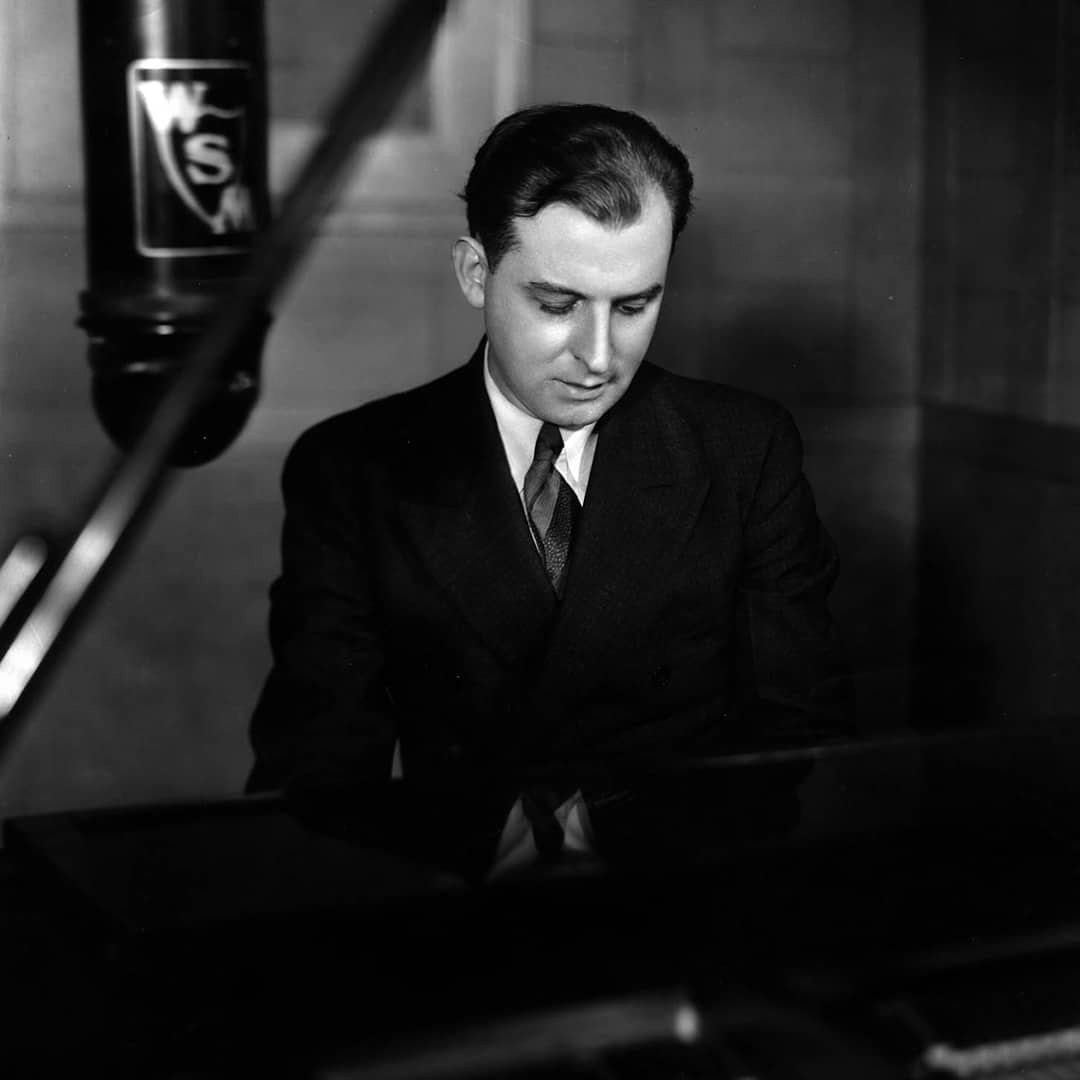
-
Inducted1962
-
Born
September 15, 1903
-
Died
November 23, 1992
-
Birthplace
Maynardville, Tennessee
Emerging as a star during the early 1940s, Roy Acuff ranked among the Grand Ole Opry’s most popular performers and the longtime ambassador of that institution and country music generally.
Acuff helped intensify the star system at the Grand Ole Opry and remained the show’s leading personality until his death. In so doing, he formed a bridge between country music’s rural stringband era and the modern era of star singers backed by fully amplified bands. In addition, he co-founded Acuff-Rose Publications with songwriter Fred Rose, thus laying an important cornerstone of the Nashville music industry. For these and other accomplishments, he was elected to the Country Music Hall of Fame in 1962 as its first living member.
Rural Roots and Musical Beginnings
Although he helped bring country music to the city and to the world of big business, Roy Claxton Acuff came from a rural, folk-based background. His father farmed while also serving as Maynardville’s postmaster and pastor of the town’s Baptist church. As a youth, Acuff absorbed music of all sorts: folk ballads and fiddle tunes learned from neighbors and kin, hymns learned from itinerant singing-school instructors, recordings of early country artists, and even some of the classical vocal training pursued by his sister Sue after the family moved to the Knoxville suburb of Fountain City. Acuff’s real love at the time, however, was sports; in high school, he lettered in football, basketball, and baseball.
After graduation, Acuff turned down a scholarship to nearby Carson-Newman College and worked temporarily at a variety of jobs, including that of railroad “call boy,” the one responsible for rounding up other workers as the need arose. He also played semiprofessional baseball and boxed informally. Early in 1929, major-league baseball scouts recruited Acuff for training camp, but his physical collapse during a game—an after-effect of earlier sunstroke—prompted a nervous breakdown and sidelined him for most of 1930.
During his recuperation, Acuff began to practice his fiddle, and in 1932, he worked a medicine show tour of the Tennessee-Virginia mountains that fired his enthusiasm for show business. Next, he began playing square dances and other gatherings with various local musicians, including Lonnie Wilson and Beecher “Pete” Kirby, who would both become longtime members of his band. Radio broadcasts on Knoxville’s WROL and WNOX broadened his experience. It was a WROL announcer, in fact, who named Acuff’s band the Crazy Tennesseans. His radio fame caught the attention of American Record Corporation (ARC) producer W. R. Calaway, who brought Acuff and the band to Chicago to cut their first twenty sides in 1936. Follow-up sessions yielded recordings released on a series of department-store labels, budget priced for Depression-era buyers.
Songs
00:00 / 00:00
00:00 / 00:00
00:00 / 00:00
Becoming a Grand Ole Opry Star
Acuff lost little time trying to gain a spot on the Grand Ole Opry, but the Opry’s George D. Hay repeatedly refused his services until promoter J. L. Frank intervened on Acuff’s behalf. A 1937 guest spot produced no results, but another, on February 5, 1938, did the trick when Acuff’s performance of his now-classic “Great Speckled Bird” generated sacks of fan mail. Frank suggested a new band name, the Smoky Mountain Boys, and Opry executives Harry Stone and David Stone immediately placed the singer at the center of a budding star system at the Opry, pushing Acuff’s trademark song, “Wabash Cannon Ball,” equally aggressively. Stylistically, his clear, heartfelt vocals modernized the era’s stringband sound just enough to seem innovative and yet traditional at the same time.
Early in the 1940s, Acuff catapulted to the top of his field with help from WSM’s 50,000-watt transmitter, Opry promotion, and his status as headliner of the “Prince Albert Show,” the Opry’s NBC network segment begun in October 1939. Fast-selling songbooks, hit records such as “Wreck on the Highway” and “Fireball Mail,” issued on Columbia Records’ OKeh imprint; mushrooming gate receipts on the road; and appearances in a series of films all boosted his income to the $200,000 mark in 1942. That year, he also proved himself a far-sighted businessman by forming Acuff-Rose Publications, which laid the foundation for music publishing in Nashville while providing Acuff with his greatest source of revenue.
Acuff’s star failed to shine as brightly during the late 1940s. The rise of honky-tonk, exemplified by the Opry’s Ernest Tubb, and a smoother, pop-oriented brand of country music personified by Eddy Arnold, were eclipsing Acuff’s old-time sound. But his music continued to be highly popular, and he remained an important star in country music’s growing constellation of hitmaking artists. Although he left the Opry during 1946–1947 in a salary dispute, he soon returned to host the “Royal Crown Cola Show” segment. He also opened a recreational park near Clarksville, Tennessee; ran—unsuccessfully—for the governorship of Tennessee on the Republican ticket in 1948; and made his first international tour with an Opry troupe that performed at U.S. military bases in Europe in 1949. His subsequent travels outside the U.S. mainland included Alaska, Korea, Japan, the Caribbean, Australia, and the Mediterranean.
Videos
“Glory Bound Train”
With His Smoky Mountain Boys
Night Train to Memphis, 1946
“The Great Speckled Bird”
With His Smoky Mountain Boys
The Grand Ole Opry, 1940
Roy Acuff helped intensify the star system at the Grand Ole Opry and remained the show’s leading personality until his death. In addition, he co-founded Acuff-Rose Publications, thus laying an important cornerstone of the Nashville music industry.
Photos
-
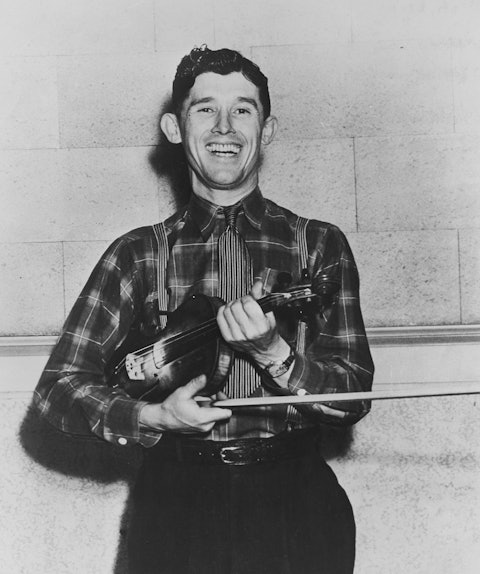
Columbia Records publicity photo of Roy Acuff, c. 1940s.
-
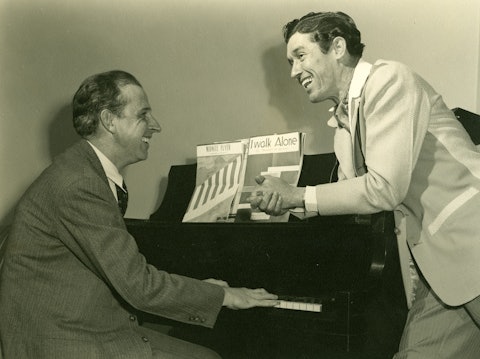
Fred Rose (left) and Roy Acuff, founders of Acuff-Rose Music Publishing, 1942.
-
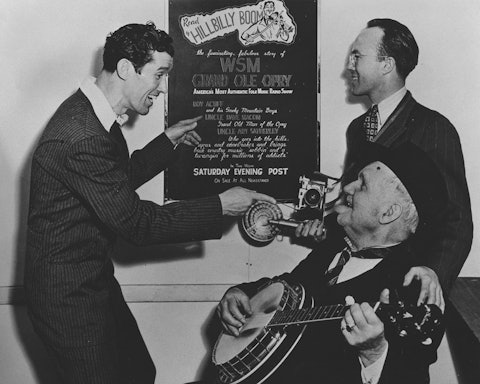
Roy Acuff gesturing toward an announcement for a Saturday Evening Post article titled “Hillbilly Boom,” 1944. Seated at center is Uncle Dave Macon.
-
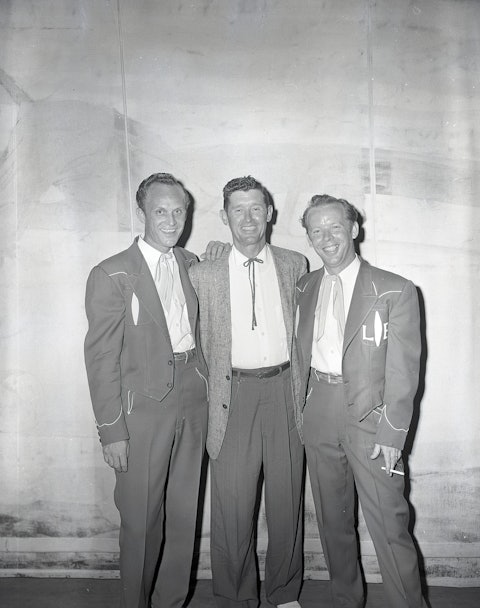
Roy Acuff, flanked by Ira Louvin (left) and Charlie Louvin, probably backstage at the Grand Ole Opry, probably late 1950s. Photo by Elmer Williams.
-
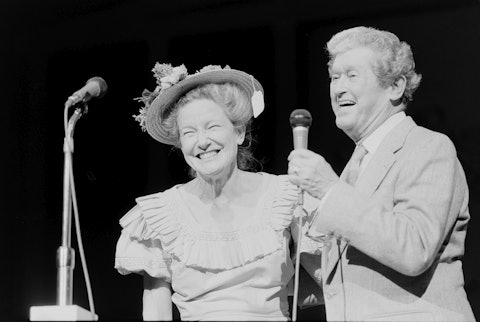
Minnie Pearl and Roy Acuff onstage, 1988. Photo by Raeanne Rubenstein.
-
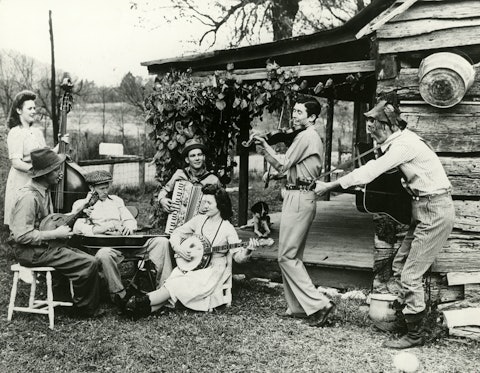
Roy Acuff (second from right) & His Smoky Mountain Boys near a log cabin, 1945.
-
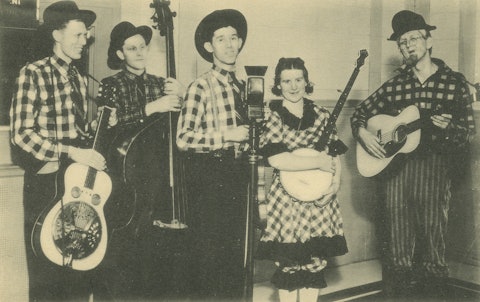
OKeh Records promotional postcard of Roy Acuff (center) & His Smoky Mountain Boys, c. early 1940s.
-
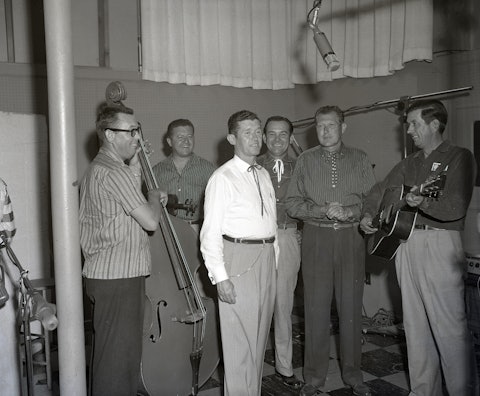
Roy Acuff (third from left) and musicians at a Bradley Studio recording session, c. late 1950s. Photo by Elmer Williams.
-
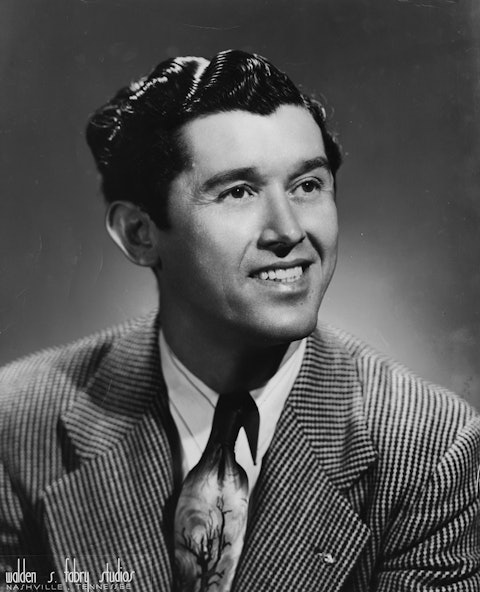
Studio portrait of Roy Acuff, 1950. Photo by Walden S. Fabry Studios.
Later Career
By the early 1950s, Acuff could easily have retired from the recording studio and the road, but he remained active, recording for Capitol, Decca, MGM, and, after 1957, Hickory Records, a label he formed with Fred Rose and Wesley Rose in 1953. In 1959, Acuff and Wesley Rose formed the Acuff-Rose Artists Corporation, which proved to be a successful booking agency. The singer’s records charted occasionally during the 1950s, but his annual sales generally amounted to a small, if steady, 25,000 copies. Combined with falling road show receipts during the late fifties and early sixties, his modest sales prompted him to temporarily incorporate a snare drum and electric guitar into his band, but these experiments were ultimately abandoned in favor of a return to his standby all-acoustic sound. After he suffered serious injuries in a 1965 car wreck that also nearly killed band member Shot Jackson, Acuff began to speak of retiring from the road, though he would continue to make personal appearances for some time to come.
In 1971, Acuff received a substantial career boost by participating in the Nitty Gritty Dirt Band’s famous “Will the Circle Be Unbroken” recording sessions. The three-record album of that same title, which was released in 1972, featured a number of country music greats, including Maybelle Carter, Merle Travis, and Doc Watson. The LP added to the exposure Acuff had gained on the college circuit during the folk music revival of the 1960s. Other testaments to his continuing popularity were the 1974 chart-making records “Back in the Country” and “Old Time Sunshine Song,” written by then Acuff-Rose singer-songwriter Eddy Raven.
Although appearances on Hee Haw and TV specials also helped keep Acuff in the public eye, his primary showcase continued to be the Grand Ole Opry. His long-held role as the Opry’s senior statesman gave him a status that no Opry star has surpassed.
—John W. Rumble
Adapted from the Country Music Hall of Fame® and Museum’s Encyclopedia of Country Music, published by Oxford University Press

